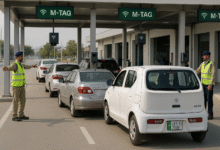How Tech Is Supporting Mental Health Awareness in Pakistan

In a world where conversations around mental well-being are gaining momentum, Pakistan is also witnessing a significant shift. Traditionally, mental health was a taboo subject in Pakistani society, often brushed under the carpet. However, a new wave of technology-driven initiatives is helping break these barriers. Today, we delve deep into how tech is supporting mental health awareness in Pakistan, making mental health resources more accessible, affordable, and stigma-free.
The Mental Health Crisis in Pakistan
Before we explore the role of technology, it’s essential to understand the mental health landscape in Pakistan. According to the World Health Organization (WHO), approximately 24 million people in Pakistan suffer from mental health issues. Yet, there are fewer than 500 trained psychiatrists available nationwide, mainly concentrated in urban centers. This massive treatment gap highlights the urgent need for innovative solutions, and that’s where technology steps in.
Rise of Teletherapy Platforms
One of the most profound ways tech is supporting mental health awareness in Pakistan is through teletherapy platforms. With apps like Saaya Health, ReliveNow, and Marham, people can now connect with qualified therapists from the privacy of their homes.
Teletherapy offers several advantages:
- Accessibility: People living in remote areas no longer have to travel long distances to seek help.
- Affordability: Online sessions often cost less than traditional in-person therapy.
- Anonymity: Individuals who fear social stigma can access mental health services discreetly.
These platforms are not only connecting patients with therapists but are also actively involved in spreading mental health education through blogs, webinars, and social media campaigns.
Mobile Apps for Mental Wellness
Another significant avenue where tech is supporting mental health awareness is through mobile apps specifically designed to promote mental wellness. Apps like Calm and Headspace and Pakistan-based initiatives such as Humraaz focus on stress management, mindfulness, and self-care routines.
Features commonly offered by these apps include
- Guided meditations
- Mood tracking
- Breathing exercises
- Cognitive Behavioral Therapy (CBT) techniques
By integrating mental wellness practices into daily routines, these apps make mental health care an ongoing, proactive effort rather than a reactive one.
Social Media Campaigns and Online Communities
Social media has become a double-edged sword for mental health, but when used effectively, it’s a powerful tool for raising awareness. Influencers, celebrities, psychologists, and NGOs are using platforms like Facebook, Instagram, TikTok, and Twitter to destigmatize mental health discussions.
Campaigns such as #EndTheStigmaPK and initiatives led by organizations like Taskeen and The Therapy Works have created safe spaces for people to share their experiences. This is a vital way tech is supporting mental health awareness, normalizing the conversation around mental well-being, and encouraging others to seek help without shame.
Online Workshops and Webinars
Educational institutions, NGOs, and mental health professionals are leveraging tech to organize online workshops and webinars aimed at mental health literacy. These sessions cover topics like anxiety management, depression coping strategies, mindfulness, and suicide prevention.
With the widespread availability of Zoom, Google Meet, and Microsoft Teams, these online events have become more frequent and inclusive, allowing participation from all over the country, including underserved rural regions.
Artificial Intelligence and Chatbots
AI-powered chatbots are the next frontier in the way tech is supporting mental health awareness in Pakistan. Although still in the early stages, initiatives like Roshan Pakistan’s Chatbot are providing emotional support, information, and resources 24/7.
AI-driven solutions offer:
- Immediate assistance
- Cost-effective scalability
- Resource sharing based on user needs
These tools are not a replacement for human therapists but serve as an important first point of contact for those unsure about seeking professional help.
Mental Health Hotlines and SMS Services
Recognizing the mobile-first nature of the Pakistani population, several mental health organizations have launched hotline and SMS services. Services like Umang Pakistan and Rozan Helpline offer immediate mental health support to anyone in distress.
The simplicity of using a phone to text or call a counselor dramatically lowers the barriers to seeking help, especially in areas with limited internet connectivity.
Virtual Reality (VR) in Mental Health Therapy
Though still emerging, virtual reality (VR) is another area where tech is supporting mental health awareness. VR-based exposure therapies are helping individuals with PTSD, phobias, and anxiety disorders in controlled, safe environments.
VR allows therapists to simulate environments tailored to individual needs, making treatment both effective and personalized. Some research initiatives in major Pakistani universities are beginning to explore this technology as a viable mental health treatment tool.
Collaborations Between Tech Firms and NGOs
Partnerships between technology firms and non-governmental organizations (NGOs) are playing a crucial role. Companies like Telenor Pakistan have partnered with mental health organizations to offer free mental health resources to their users.
Such collaborations amplify the reach and impact of mental health initiatives, bringing together technological expertise and psychological insight for the greater good.
E-Learning Courses on Mental Health
Platforms like Coursera, EdX, and local educational portals are offering online courses focused on mental health awareness, resilience building, and emotional intelligence. By equipping individuals with knowledge and coping strategies, tech is supporting mental health awareness and empowering people to take charge of their mental well-being.
Local institutions are also offering certifications in counseling and mental health support through online programs, creating a new generation of mental health advocates and paraprofessionals.
Challenges and The Road Ahead
While tech is undoubtedly a powerful tool, it is not without challenges. Issues such as data privacy, digital literacy, and accessibility still need attention. Moreover, cultural sensitivity is crucial — tech solutions must be localized and designed keeping in mind Pakistan’s diverse socio-economic landscape.
That said, the road ahead is promising. With continuous innovation and a multi-stakeholder approach involving tech companies, healthcare providers, and the government, Pakistan can bridge the mental health treatment gap significantly.
Conclusion
In conclusion, tech is supporting mental health awareness in Pakistan in numerous impactful ways — from teletherapy and wellness apps to AI-driven chatbots and online education. These technological interventions are breaking the stigma, making mental health resources more accessible, and fostering a culture of openness and support. As the digital landscape evolves, the hope is that mental health care in Pakistan will become not just a necessity but a fundamental right accessible to all.
By embracing technology, Pakistan is taking crucial steps toward a mentally healthier society. The synergy between tech innovation and mental health advocacy holds the promise of a future where seeking mental health support is as normalized as visiting a doctor for physical ailments.











